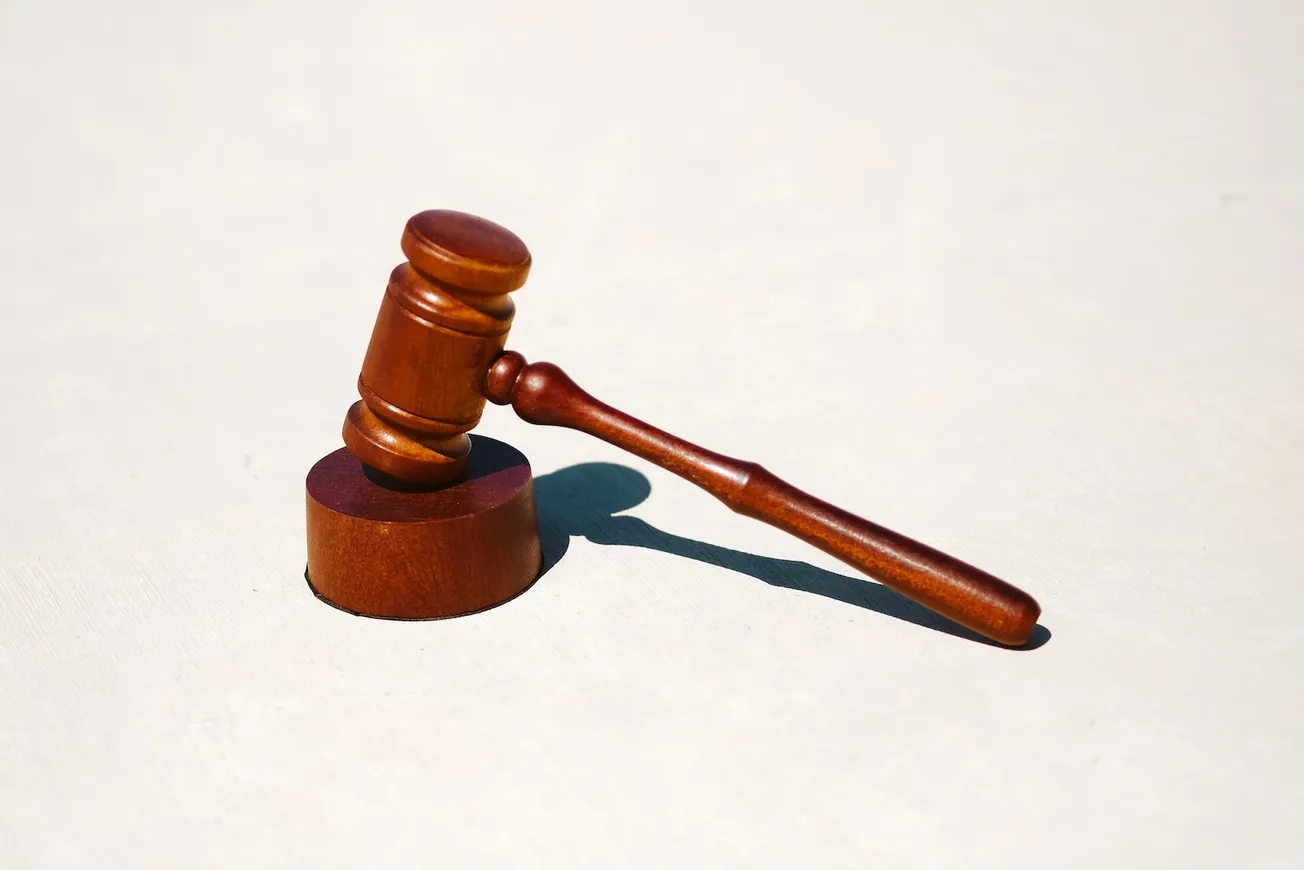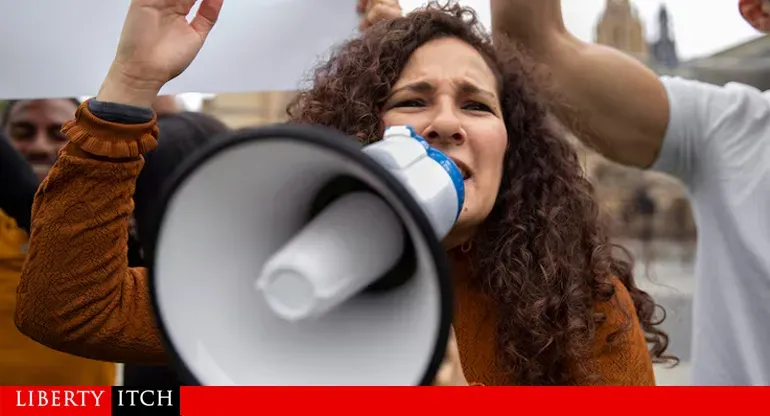Table of Contents
William Spruance
William Spruance is a practicing attorney and a graduate of Georgetown University Law Center. The ideas expressed in the article are entirely his own and not necessarily those of his employer.
Rare episodes can symbolize the entire madness of an era. President Bush’s “Mission Accomplished” speech encapsulated the patriotic zeal and overconfidence that defined the early days of the Iraq invasion. In 2020, Gavin Newsom’s dinner at French Laundry epitomized the hypocrisy and comfort of elites during Covid. Today, Stanford’s DEI administrator hijacking of a circuit judge’s speech represents far more than a mere campus showdown.
Earlier this month, Tirien Steinbach led students in heckling and shouting down Fifth Circuit Judge Stuart Kyle Duncan. “Is the juice worth the squeeze?” Steinbach, Stanford’s Assistant DEI Dean, asked repeatedly as she delivered planned remarks from the podium that was prepared for Duncan. Federal marshals later escorted Judge Duncan out the back door after protestors continued their interruptions.
Tirien Steinbach’s censorious and sanctimonious diatribe embodies larger trends of the modern era: institutions’ abandonment of free speech principles, the most powerful people in the country posturing under the banner of victimhood, and the entitlement of wrongdoers who regurgitate the proper shibboleths.
Free Speech Abandonment
Not long ago, an alumna of UC Berkeley and the ACLU would be at the forefront of defending free expression. Steinbach attended law school and worked at Berkeley, the cradle of the free speech movement. She later worked as chief program officer at a local chapter of the ACLU, an organization that became famous for its defense of First Amendment liberties for all Americans.
The ACLU famously defended neo-Nazis’ right to march through a Jewish suburb, but now Steinbach led a censorship campaign based on her disapproval of a federal judge’s political and legal philosophy. In her address to Duncan, she claimed he “literally denies the humanity of people”. She prioritized politically correct talking points over tolerance for dissent from mainstream campus opinion, a long way from the former bedrock principles of her past organizations.
The ACLU has not released any statement on the censorship of Judge Duncan. More pressing news releases in the last two weeks have included “The Revolutionary Power of Teenage Girls” and “Trans Rights are Women’s Rights.” Liberal students in the Bay Area did not demonstrate in defence of the Federalist Society’s right to political organization. Instead of Mario Savio standing in front of Sproul Hall to defend campus liberty, masked students in their 20s berated Judge Duncan because he denied a transgender paedophile’s petition to change his name on court documents.
Claiming Victimhood
From Meghan Markle to LeBron James, the most privileged people in our culture claim the mantle of victimhood to cudgel their opponents into silence. Steinbach represents an institution with an endowment of $40 billion. She attended one of the top law schools in the country and makes approximately $200,000 per year for a job title that didn’t exist 10 years ago.
But Steinbach does not recognize that she is a card-carrying member of a privileged elite. Instead, she identifies as a victim of societal and racial oppression. On Twitter, she bemoans,“As a country, we have not reckoned with race, racism and white supremacy culture.” As she hijacked the podium two weeks ago, she lectured Judge Duncan, “Your advocacy, your opinions from the bench, land as absolute disenfranchisement of their rights.”
Stanford Law students followed suit, referring to Duncan as an oppressor of his censors. “The way that he was treating Dean Steinbach shows the way he treats people who are different from him, which is [people who are not] not a cis-het white man,” protester Hayden Henderson JD ’24 told a campus paper. Fellow student Denni Arnold, who helped organize the protest, justified the tantrum because she alleged that Duncan advanced an “homophobic and transphobic agenda”.
This gaslighting phenomenon is not unique to Stanford. In 2019, a group of self-appointed censors at Georgetown Law prevented their peers from hearing an address from Kevin McAleenan, the acting Secretary of Homeland Security. After screaming until McAleenan left campus, the disruptors insisted that any punishment for their role in the protest “would have a chilling effect on free speech and expression across campus”. Georgetown Law Dean Bill Treanor chose not to discipline the students despite their explicit violation of the school’s free speech policy.
Similarly, Stanford’s censors offer justifications rather than contrition for their actions. The campus chapter of the National Lawyers Guild – which helped organize the demonstration – praised the protest as “Stanford Law at its best.” The group referred to Duncan as a “judicial architect of systems of oppression” and expressed its support for continued campus censorship.
Modern day censors justify their oppression of free expression by claiming the status of victimhood. In doing so, they demonstrate no understanding of the irony or contradictions in their posturing.
Progressive Entitlement
Following the fall of FTX, a reporter asked Sam Bankman-Fried about his previous efforts to foster a benevolent self-image, including becoming the second largest donor to Democrats in the 2022 election cycle. SBF told the reporter his publicized dedication to progressive values and “ethics” was part of a “dumb game we woke Westerners play where we say all the right shibboleths and so everyone likes us”.
Academia often takes a similar approach, rewarding those who profess the right shibboleths and punishing those who commit campus heresy. Fittingly, SBF’s parents are Steinbach’s co-workers at Stanford Law. Steinbach understands the prevailing orthodoxies of university culture. Her job title is a testament and direct result of heightened sensitivities surrounding concepts of diversity, equity and inclusion. Thus, she likely expected a type of social and professional immunity.
“The biggest perpetrator of the incident was not the group of students, but the Stanford administrator who actively encouraged students to go against Stanford’s free speech policy,” a group of students wrote in the Stanford Review.
Stanford’s free speech policy prohibits faculty, staff, and students from preventing or disrupting “the effective carrying out of a University function or approved activity, such as lectures… and public events.”
Typically, punishment is reserved for those who deviate from university groupthink. Based on other law schools’ treatment of those who run afoul of institutional orthodoxy, Steinbach could have assumed that her beliefs protected her from backlash.
In 2022, Georgetown Law Dean Bill Treanor indefinitely suspended Ilya Shapiro for criticizing President Biden’s decision to limit his consideration for nominations to the Supreme Court to black women (Shapiro later resigned). Treanor fired Sandra Sellers for noting racial disparities in student performance and suspended her co-worker just for listening to her. But he issued no punishment for progressive students’ violation of the school’s free speech code.
Last year, a similar controversy occurred at Yale Law when a group of screaming students interrupted a bipartisan “free speech panel.” Police had to escort one panelist out of the building, and the event was unable to continue. Administrators at Yale Law determined that the disrupters did not violate campus policy despite one student threatening a speaker, “I’ll fight you, bitch.” In absolving the students of wrongdoing, Yale Law Dean Heather Gerken noted the protestors’ position on “LGBTQ rights, including same-sex marriage and the treatment of transgender people”.
Amy Wax, a tenured law professor at Penn, may lose her job because she opposes affirmative action and publicly critiques university admissions’ policy of racial handicaps. For defying campus groupthink and criticizing the sacred cow of institutional race preferences, her tenure status may prove worthless.
Unlike Wax, Steinbach fervently supports racial affirmative action programs. “Race blind is code for benefiting White culture/people,” she claims. Given her fashionable political beliefs, she could reasonably expect the lenient treatment that Georgetown and Yale students received.
On Wednesday, Stanford announced that Steinbach was on leave from her position. The university published a 10-page letter to the community from Jenny Martinez, Dean of Stanford Law. Martinez defended the role of free speech on campus and wrote, “at future events, the role of any administrators present will be to ensure that university rules on disruption of events will be followed”.
Steinbach’s behaviour reflected an entitlement amongst bad actors that their social and political causes render them immune from consequences. In cases like Georgetown, Yale, and Penn, institutions punished those who questioned their ideology and condoned those who flagrantly defied their policies.
Demonstrated conformity to the socially fashionable beliefs provided cultural and professional immunity that has given rise to entitlement amongst progressive actors like Steinbach. Dean Martinez’s letter exhibited the basic principles required to stem that tide, a notable stand compared to her peers at other universities who have dithered under similar circumstances.









